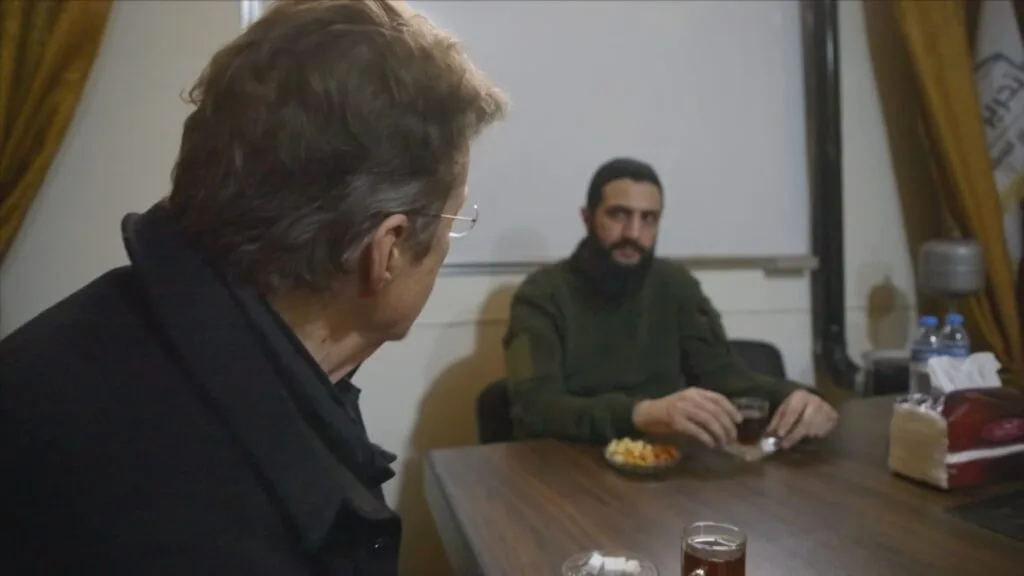Who Is the Rebel Leader Who Ousted Assad?

December 13, 2024
On December 8, 2024, Syrian rebels stunned the world when they seized Damascus and toppled the government of Bashar al-Assad, more than 13 years into the country’s brutal war.
Spearheading the rebel offensive was Abu Muhammad al-Jolani, the leader of the Syrian militant group Hayat Tahrir al-Sham (HTS) — and a man who has been designated a terrorist by the U.S. since 2013.
In 2021, FRONTLINE correspondent Martin Smith became the first Western journalist to interview Jolani. Following Assad’s fall, Smith sat down with FRONTLINE editor-in-chief and executive producer Raney Aronson-Rath to talk about what he learned from his conversations with Jolani, Jolani’s journey from al Qaeda commander to rebel leader seeking a new role in Syria’s future, and why he will be “watching to see what Jolani actually does, not what he says” as a new chapter in Syrian history unfolds.
Stream The Jihadist, FRONTLINE’s 2021 documentary investigating Jolani, his militant group and his ambitions for Syria, on FRONTLINE’s website, FRONTLINE’s YouTube Channel or the PBS App. Read more of FRONTLINE’s coverage of Syria.
Want to be notified every time a new podcast episode drops? Sign up for The FRONTLINE Dispatch newsletter.
Latest Documentaries
Explore
Policies
Teacher Center
Funding for FRONTLINE is provided through the support of PBS viewers and by the Corporation for Public Broadcasting, with major support from Ford Foundation. Additional funding is provided the Abrams Foundation, Park Foundation, John D. and Catherine T. MacArthur Foundation, Heising-Simons Foundation, and the FRONTLINE Trust, with major support from Jon and Jo Ann Hagler on behalf of the Jon L. Hagler Foundation, and additional support from Koo and Patricia Yuen. FRONTLINE is a registered trademark of WGBH Educational Foundation. Web Site Copyright ©1995-2025 WGBH Educational Foundation. PBS is a 501(c)(3) not-for-profit organization.



















